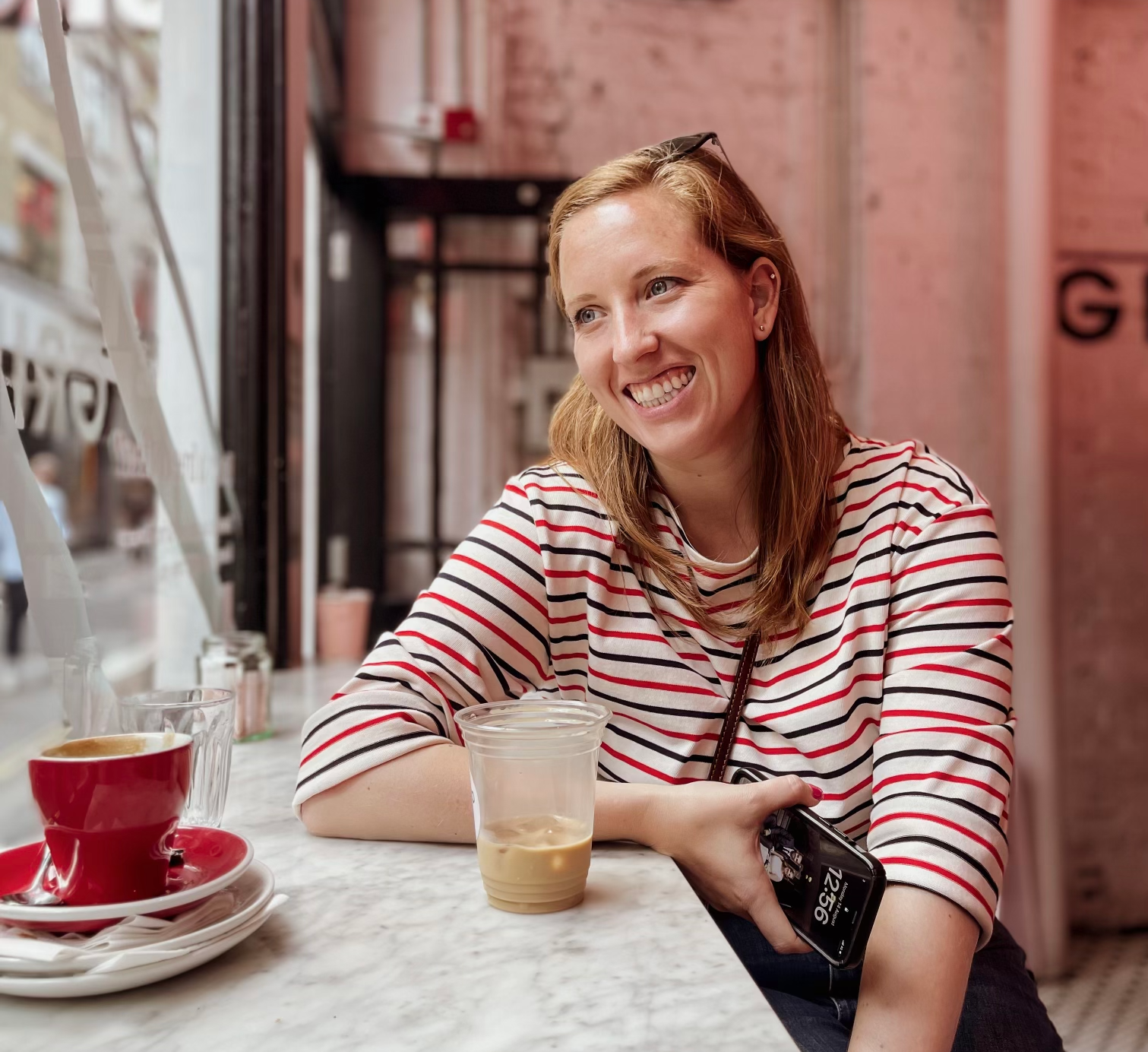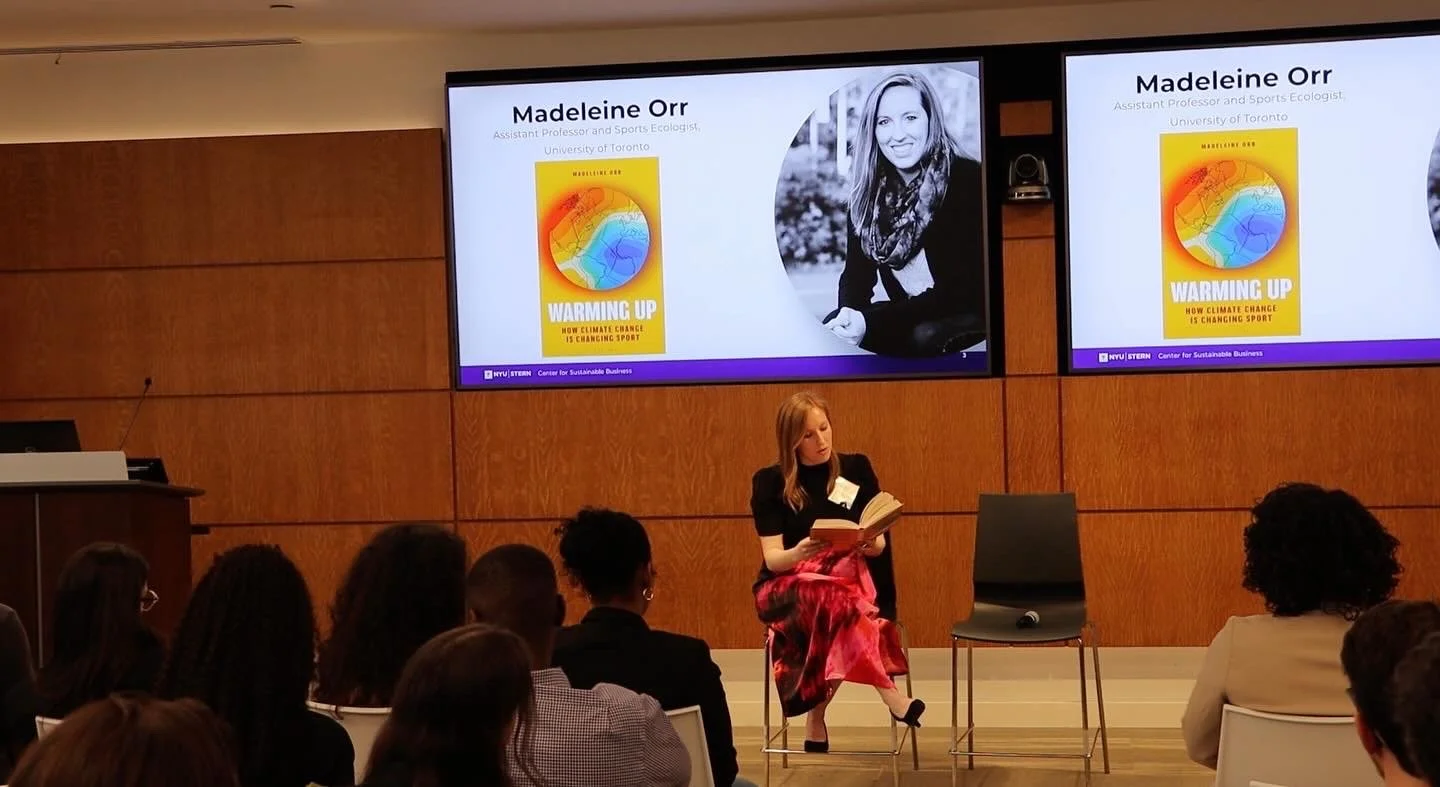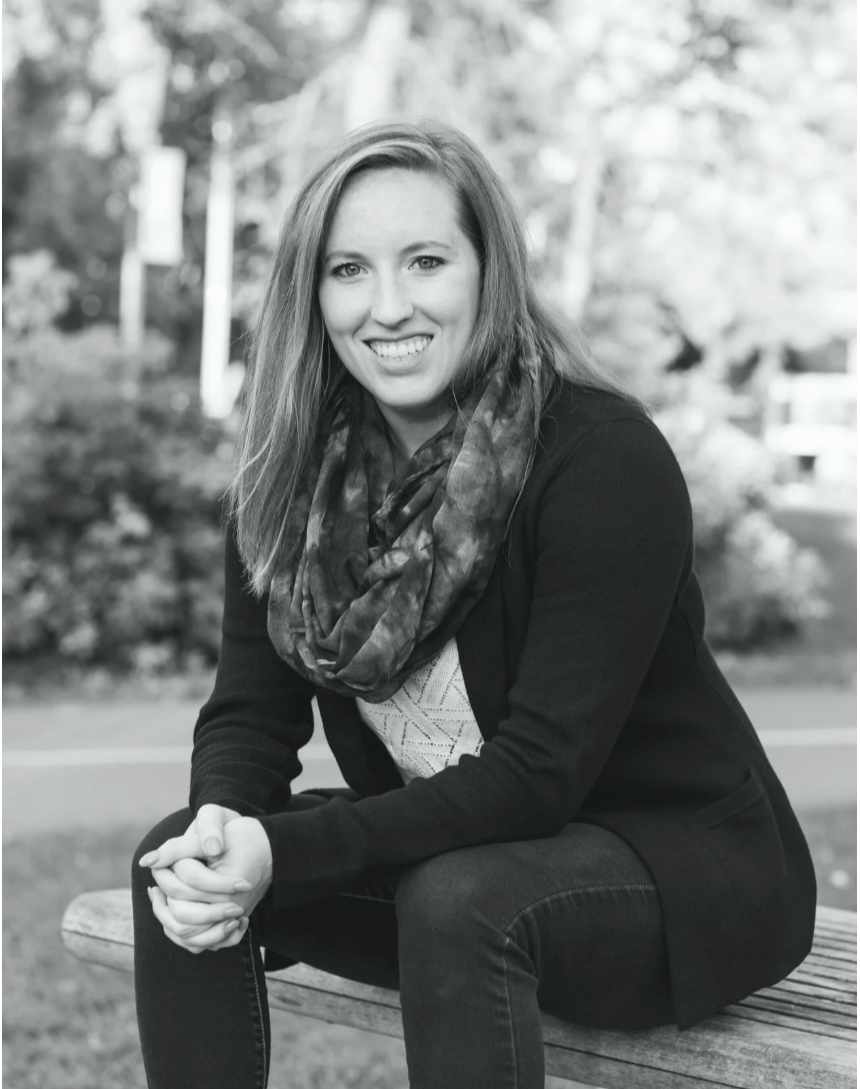MADELEINE ORR
“Climate change is going to impact the places we play.”
Meet Madeleine Orr, a researcher, educator and advocate working at the intersection of sport and climate change, known as “sport ecology” in the academic space. She can usually be found either sipping coffee and analysing climate data, or walking the sidelines of a sport event to figure out how to help make it more sustainable and climate resilient.
“I played sports growing up, but I was never going to be a professional athlete. I just enjoyed that it provided time and space to be with my friends, and play!”
“Later, in my twenties, I took a gap year and worked in the ski sector, where I witnessed one of the worst snow years in the Alps and had a bit of a wake-up call: climate change is going to impact the places we play.
Once I saw it, I couldn't un-see it, and I've spent the last ten years studying sport ecology to identify climate risks and championing solutions to make sporting communities more resilient and just.
I'm lucky to have a few badass women mentors who've really paved the way for me and championed my work, providing critical feedback at key turning points in my career and cheering me on when I needed a bit of a boost.
I owe endless shout outs to Aileen McManamon at 5T Sports and Green Sports Alliance, Prof. Ann Pegoraro at University of Guelph, Prof. Ingrid Schneider at the University of Minnesota, and of course all my friends and collaborators - because climate action is a team sport.”
SPORT ORGANISATIONS AND CLIMATE CHANGE
“Sport organisations are often the centre of communities, which comes with a huge amount of power but also responsibility to talk about what's happening in that community and be part of the solutions.
With this in mind, I think sports have to talk about how climate change is impacting their communities (e.g., extreme heat impacting health and playing opportunities, flooding impacting sports fields and homes, disasters that disrupt sporting events and impact community wellbeing) and take steps to make their space as sustainable as possible, while encouraging their participants, fans, partners, and everybody else to do the same.
They need to work to reduce theirfootprint and increase dialogue with all stakeholders.”
SUCCESSFUL SUSTAINABLE PRACTICES IN SPORT
There's a lot of good stuff happening in this space. A few off the top of my head:
- Bohemians FC in Dublin, Ireland are centering their community and delivering climate justice-focused programming, education, and interventions (training people for clean energy jobs, hosting speaker events, etc.).
- World Athletics has developed a sustainability standard for their events which is fairly comprehensive and has raised the bar for event sustainability in sports, while providing the resources and training to bring everybody along for the ride.
- The new UNFCCC Sports for Climate Action online course (which is FREE!) is a cool new project to educate people around the world about climate change using sport examples, and it's being used to up-skill sport workers in every corner of the globe.”
FUTURE TRENDS IN SUSTAINABILITY
“Reporting is a big one: slowly, governments are adopting reporting requirements on emissions and ESG; it's going to be a steep learning curve for sport organisations that aren't already measuring and reporting on emissions, but it's an important step in the right direction! (And if anybody is reading this and doesn't know how to get started, get in touch on LinkedIn and I'll point you in the right direction!)
I also anticipate a lot more flexibility coming into sporting calendars, kind of like what happens in surfing, where a competition will be scheduled over several days and the athletes compete whenever the conditions are best suited to competition. With all the issues related to extreme heat, wildfires and smoke, storms and floods, and so on, we'll need to let go of our tightly scheduled sport systems if we want to preserve playing opportunities and ensure the best possible chance for athletes to deliver top performances.
Maybe I'm alone on this one, but I think there's great stuff with AR and holograms and similar technologies that will make it so much more fun to watch sport events at home or in fan zones, which could lead to a drop in fan travel while increasing access and inclusivity. It would also provide sponsors and advertisers with a chance to target their messaging to their key audiences, by reaching them at home or in their home towns, instead of only reaching the fans on-site at an event.”
MADELEINE’S JOURNEY IN SPORT
“My career in this space has been unconventional, and I think that's maybe the most important take-away:
if you don't see the job you want in the sector, it's possible to carve out something that's unique to you and matches your skill sets and talents.
I also hope people are inspired to take climate action when they learn about what I'm doing... but of course, I'm not here to tell people what to do, just point them to the best available data and evidence!”
“Build your circle of peers and friends. This industry is tough. Long hours, low pay, and sky high expectations. It's an industry that doesn't just accept status quo, it's always pushing pushing pushing. It can be exhausting. So, build your circle of friends and ruthlessly support each other.”



